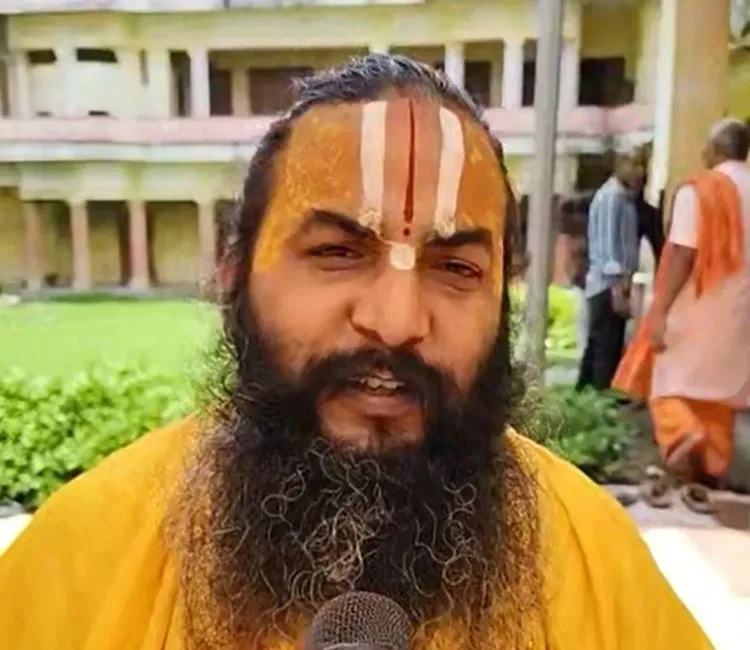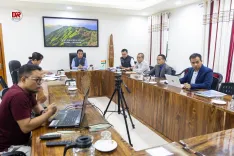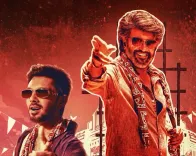How did the Emergency shape Indira Gandhi's India compared to PM Modi’s era?

Synopsis
Key Takeaways
- The Emergency was a period of significant oppression in India.
- Public welfare and democratic expansion characterize PM Modi’s governance.
- Historical awareness is essential for future democratic integrity.
- Political repression can lead to lasting impacts on democracy.
- The 1975 Emergency highlights the importance of civil liberties.
Ayodhya, June 25 (NationPress) As India commemorates the 50th anniversary of the 1975 Emergency, saints and spiritual leaders from across the nation have made acute comparisons between the “dark era” of former Prime Minister Indira Gandhi and the current phase under PM Narendra Modi’s governance.
Reflecting on this pivotal moment in history, they noted that while the Emergency was characterized by oppression, fear, and struggles, today’s India is marked by democratic growth, advancement, and public welfare.
In conversations with IANS, notable saints from Ayodhya recounted the anguish of June 25, 1975, when individual freedoms were suspended, and political adversaries were imprisoned, contrasting it with the present administration’s commitment to public welfare and democratic principles.
Mithlesh Nandani Sharan Ji Maharaj of Hanumant Residence in Ayodhya stated, “When we juxtapose the Emergency with today, the disparities are immense. At that time, people were suffering, tormented, and even facing starvation. Now, under PM Modi, individuals are satisfied and enjoying the benefits of various government initiatives. There is peace, prosperity, and contentment today. That period was fraught with hardship.”
He continued, “On June 25, 1975, and now, on June 25, 2025, we are witnessing a transformed India. It is a testament to the progress of democracy and welfare that people are pleased with the current administration.”
Diwakar Acharya Maharaj of Hanumangarhi, Ayodhya, shared similar views and condemned the motivations behind the Emergency declaration by then PM Indira Gandhi.
“On June 25, 1975, under the leadership of then-President Fakhruddin Ali Ahmed, the Emergency was enforced to safeguard Indira Gandhi’s political agenda. This jeopardized democracy and the Constitution. Nationalists were jailed, unrest was propagated, and dynasty politics thrived,” he remarked.
He added, “The decision to impose an Emergency at midnight was not for the nation’s benefit but to shield personal ambitions. Today, in its 50th year, the nation has awakened and rejected such anti-democratic tactics. Those who once claimed to be defenders of democracy were, in fact, the ones who undermined it.”
Saint Satendra Das Vedanti Ji Maharaj also offered a historical and philosophical viewpoint.
“We need to recognize the stark differences. Today, India is advancing while safeguarding democratic values, enhancing its sovereignty, and fostering national pride globally. The safety and convenience of citizens are prioritized. However, during the Emergency, these principles were obliterated in the name of self-preservation by the ruling authority.”
He remarked, “The 1975 Emergency remains a dark chapter in the history of independent India. It was not a strategy for national security but a response fueled by political fear. It breached constitutional norms and trampled over democratic institutions. Fifty years later, we must remember how political discontent led to the erosion of democratic frameworks.”
Emphasizing the need for public awareness, he stated, “Today’s youth must learn about both sides—the era when power was misused to suppress dissent and the current time when the nation is progressing by upholding democratic principles and fostering inclusive growth. The populace, especially the younger generation, must understand how democracy prevails when citizens rise against unjust authority.”
On this very day, 50 years ago, June 25, 1975, India faced one of the bleakest chapters in its democratic saga when the then Prime Minister Indira Gandhi declared a national Emergency. The announcement was made late at night, curbing civil liberties, censoring the press, and detaining thousands of political adversaries without trial. The Emergency persisted for 21 months until March 21, 1977.
This period marked the third national Emergency in India, following the inaugural one in 1962 during the India-China conflict and the second in 1971 during the India-Pakistan war.
The imposition of the Emergency came amidst escalating political turmoil, inflation, unemployment, and corruption. Student-led demonstrations and mass movements, notably those spearheaded by veteran leader Jayaprakash Narayan in Bihar and Gujarat, gained significant momentum.
A pivotal moment occurred with the Allahabad High Court ruling on June 12, 1975. Justice Jagmohanlal Sinha determined that Indira Gandhi had misused governmental resources during her 1971 election campaign and found her guilty under the Representation of the People Act, 1951. The court prohibited her from holding elected office for six years.
Although the Supreme Court granted her a conditional stay allowing her to remain as Prime Minister without voting rights, the political fallout was substantial. In response, on June 25, 1975, then-President Fakhruddin Ali Ahmed, on Indira Gandhi’s recommendation, proclaimed a state of Emergency under Article 352, citing internal disturbances.
The government executed a crackdown on the Opposition, detaining key figures like Jayaprakash Narayan, Atal Bihari Vajpayee, Lal Krishna Advani, and others. Press censorship was enforced, and civil liberties were restricted.
The Emergency concluded on March 21, 1977, shortly before the general elections held between March 16 and 20. The Indian electorate sent a strong message by voting the Congress party out of power. On March 24, 1977, the Janata Party, led by Morarji Desai, established a new government, marking the first non-Congress administration at the national level since independence.
This era left a profound impact on India’s democratic fabric but also reinforced the resilience of its constitutional institutions and the determination of its citizens.






